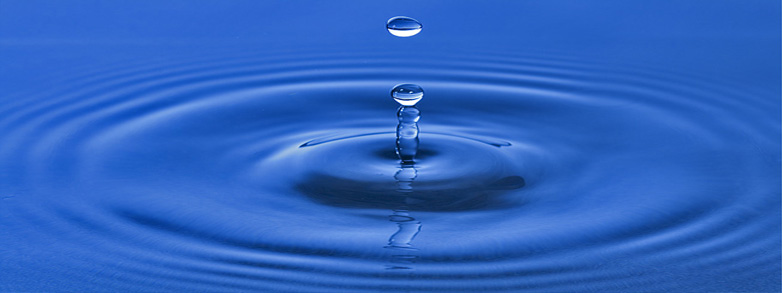
What type of water is best for your aeroponics system and plants?
The best water for your aeroponic plants must be free of impurities such as minerals, chemicals, micro-organisms, Volatile Organic Chemicals (VOCs), and have a pH of about 6.0.
Here’s a multiple choice question.
Which of these water sources are good for your aeroponics system?
-
A) Rain Water
-
B) Distilled Water
-
C) Spring Water
-
D) Drinking Water (Tap or Filtered Water)
-
E) Reverse Osmosis Water
-
F) Softened Water
First let’s eliminate the evil sources:
Softened Water
Avoid soft water. While water softeners are great for removing the hardness in your water, the sodium levels it leaves behind are deadly to your aeroponics system and plants.
Spring Water
This water is what you often find in bottled water, a well, river or just from a natural spring. It could come from an underground source or may or may not have been treated or purified.
Although spring water sounds appealing, it contains minerals and possibly bacteria that could overwhelm the nutrient balance of your aeroponics system. This is not what your plants need. The unstable water can cause plaque like deposits to build up and plug your misting nozzles like a massive heart attack.
Drinking Water
Drinking water is just that, it’s water intended for drinking. Drinking by whom? Humans, that’s right not for your plants. Normally this water comes from your local municipal source or bottled as drinking water.
Some drinking water contains fluoride for kids growing teeth and gums. When was the last time your plants had teeth? And just about all tap water is Chlorinated. So, just like spring water, we don’t want this either.
Plants that are grown indoors are especially susceptible to chemicals like chlorine. Without the presence of rain to wash away the chemicals found in faucet or tap water, they are left to build up in the container.
When using water that contains high mineral levels, the minerals can form what looks like a white crud in your growing system. This deposit can cause injury to your plant leaves and roots. Tender plants are at a higher risk of damage as a result of hard-water usage.
If you must use tap water, it is recommended that you allow the water to sit out in a wide mouth container for at least 24 hours to allow time for the chemicals, like chlorine to dissipate.
Rain Water
Were you surprised that rain water did not make the list of a good sources. Hey what’s up? Isn’t it the water source for all outdoor plants? Yes for outdoor plants in dirt.
Rain water introduces too many UNKNOWNS. What’s the pH? Any minerals I don’t want. How about bird poop? Oh, yes harmful bacteria. Nitrate levels? The list goes on.
The only good thing about rain water is you can get it free on the right days and if you live in a pristine area the water would have the right pH and hardness for healthy plants.
Stored rainwater will contain some organic matter. If collected from your rooftop, rainwater contains traces of organic material. While the water is very clean and should run clear, it was exposed to everything on your roof. We’re not talking about chunks (these get pre-filtered out on their way into properly-designed rain barrels)–we’re just talking about contact exposure to leaf litter, pollen, bird droppings and the like (which perhaps not surprisingly are great for your plants but not for aeroponics). It’s like a light application of fertilizer every time you water! Right?
Distilled Water – The Best
This is the BEST water to use in your aeroponics system which provides a clean slate to build on.
Where exceptionally high purity water is required, distilled water is used. Distilled water is water that has many of its impurities removed through distillation.
Distillation involves boiling the water and then condensing the steam into a clean container. Water that has gone through this rigorous filtration process is stripped of all contaminants and minerals.
This water is the best to use in your aeroponics system because you have complete control what is in the water by adding your own minerals without any byproducts forming. But more importantly, you wont introduce any bacteria or other micro-organism that could harm your plant roots.
Producing distilled water in large quantities can become a challenge. The energy cost and maintenance could become your second career. If you need to use more than a gallon of water a day, you might want to move on to reverse osmosis.
Reverse Osmosis Water
Reverse osmosis (RO) is probably the second best water source for your aeroponics system. There is some complicated science behind it on how it works, but it can be explained has a filter or membrane with tiny holes that allows only water molecules to past through.
Reverse Osmosis is a process in which dissolved inorganic solids like salts are removed from water. This is accomplished by household water pressure pushing the tap water through a semi permeable membrane. The membrane which is about as thick as plastic wrap, allows only the water to pass through, not the impurities or contaminates. These impurities and contaminates are blocked and flushed down the drain.
The advantages of RO:
- It is a highly effective water purification process.
- It will remove 92% to 99% of all pollutants and contaminates.
- It uses or consumes no energy. However you do need some water pressure over 50 PSI.
- It’s convenient to use.
- It autonomously flushes away pollutants away without collection.
- It’s easy to maintain and clean.
- The best part is the low production cost – gives you quality water for pennies on the gallon.
If you need large quantity of water for your aeroponics system, this is the way to go.
Final Thoughts
If you want to increase your success with your aeroponics system use distilled water. For larger crops demanding more than a gallon per day, use RO water. These two are your best choices for water sources.
Some feel bottled distilled water should be avoided, but if it’s all you can do, feel free to use it. It could get pricey at over a buck per gallon.
Okay you don’t have access to distilled water or RO water, so what should you do? I know tap water, well water, and rain water are not the best; however you can do things to make it better.
By performing further water treatment on these water sources you can greatly improve the acceptability for your aeroponics system.
First simply filter the water through a store bought water filter. Here are some good filters:
- Best – ZeroWater: The filter removes- Above 95% of estrone, PFOA, PFOS, fluoxetine, BPA, ibuprofen; above 80% of atrazine, tonalide, TCEP, DEET, and all other drugs but primidone (73%).
- Great – Pur: Pur filters removes all estrone. It removed above 71% of all drugs as well as PFOS, and above 80% of DEET, tonalide, TCEP, and BPA
- Good – Brita: The Brita filters remove above 60% for all contaminants except PFOA (55%) and sucralose (49%), but for only half the filter’s life.
Secondly, boil the water if you can. Boiling the water will kill most bacteria and remove nitrates that were still left behind. Be sure to let the water cool to room temperature before adding it to your system.
Always use a clean container for water storage and keep it in a dark and cool place out of the reach of sunlight.

